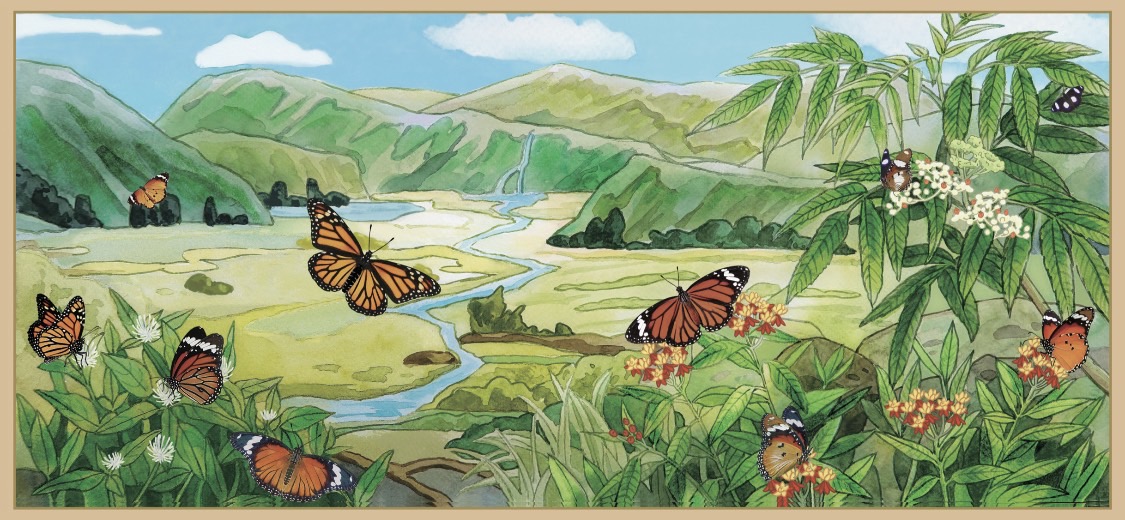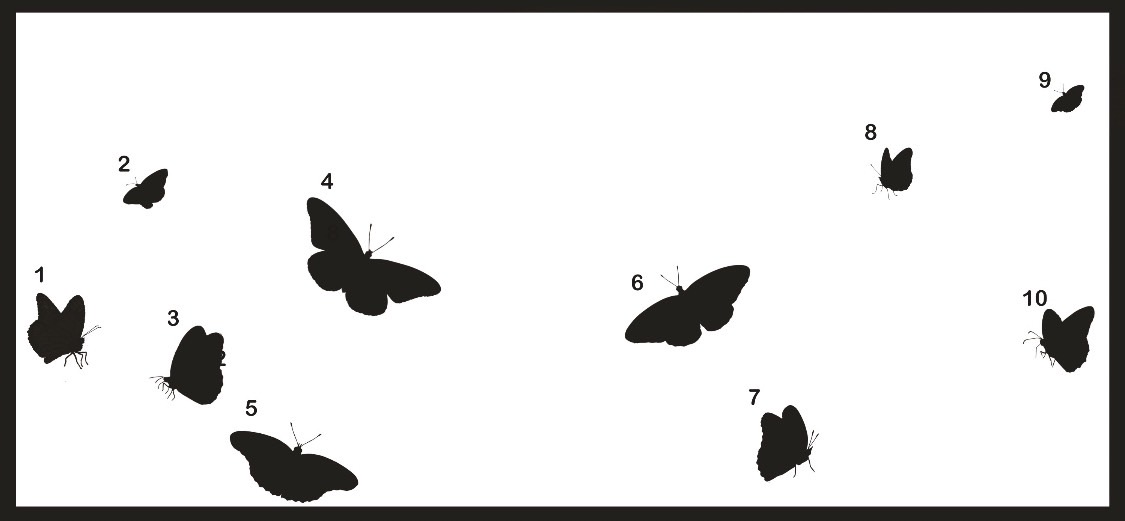
歡迎看畫賞蝶
Butterfly-watching exhibit
翩翩飛舞的斑蝶
Milkweed butterflies flying freely
這些蝴蝶外觀相似,
其中雌紅紫蛺蝶的雌蝶模仿黑脈樺斑蝶的背面翅膀模樣,
而腹面翅膀是模仿樺斑蝶,為什麼牠要模仿呢?
Who looks like
whom?
The female Danaid Eggfly mimics the ventral wings of
the plain tiger and imitates the dorsal wings of the
common tiger,
as well as the monarch.
Why does she want to do so?


1.
帝王斑蝶
(雌)
monarch (Danaus
plexippus, female)
4.
帝王斑蝶
(雌)
monarch (Danaus
plexippus, female)
6.
黑脈樺斑蝶
(雌)
common tiger (Danaus
genutia, female)
-The
Danaid
eggfly
is also called mimic mainy because of the mimicry of the female.
-Monarchs were extinct in the 1960s not only because of extensive human catch
for commercial purposes and habitat loss, but also because of maladaptation of
the tropical climate in Taiwan.
-The mimicry aims to
deter predators because both the plain tiger and the common tiger are poisonous,
reflecting Batesian mimicry, “a form of mimicry where a harmless species has
evolved to imitate the warning signals of a harmful species directed at a
predator of them both. It is named after the English naturalist Henry Walter
Bates, after his work on butterflies in the rainforests of Brazil” (from
Wikipedia).
Only two species of migratory butterflies
form large-scale overwintering gatherings worldwide.
紫斑蝶
Purple butterflies
flying from northern Taiwan to southern Taiwan
帝王斑蝶
Monarch butterflies
flying from North America to Mexico
註
有些沒有標示蝴蝶性別,
因為雌雄相似,或是圖片裡的性徵不明顯
Note
Some butterflies are not marked to indicate their genders,
because males and females look similar,
or because their sexual features are note apparent in the picture.
The answer is available
on the website of the Life Science Museum of Academia Sinica, Taiwan.